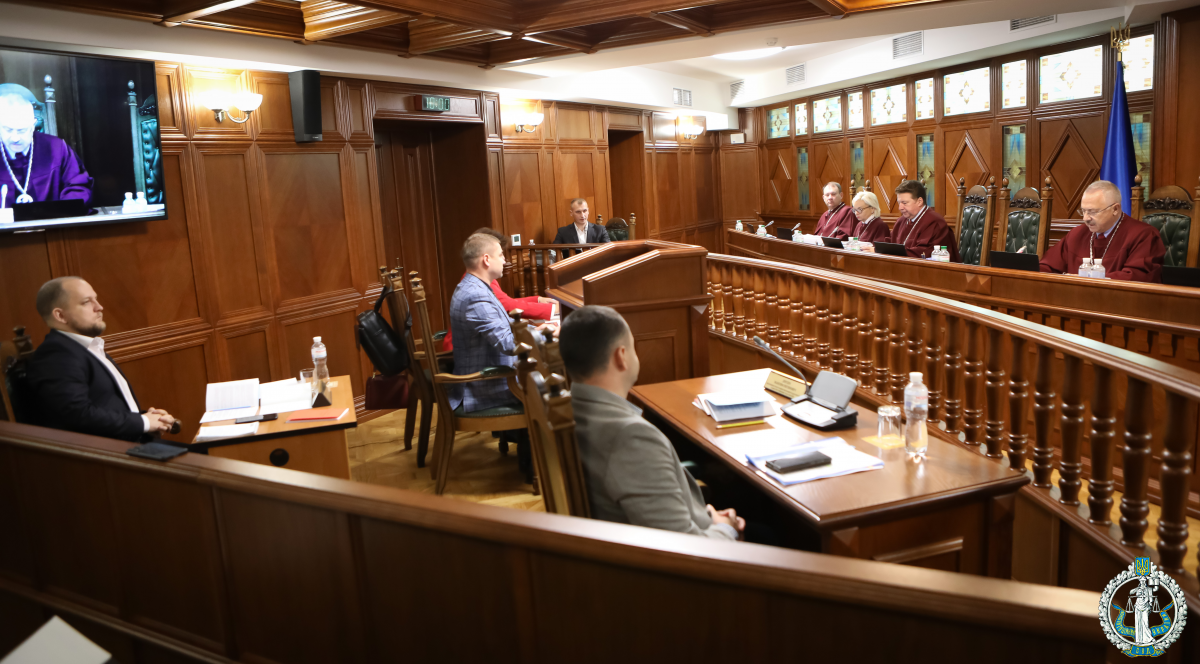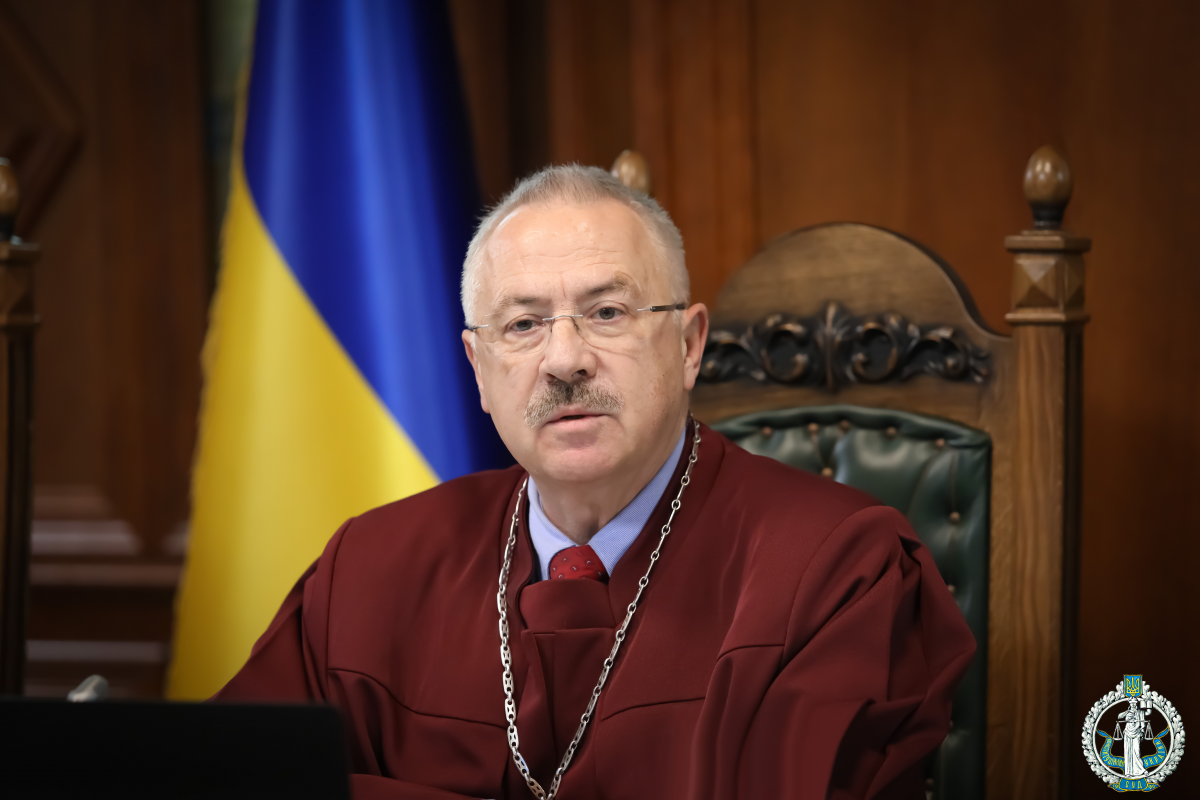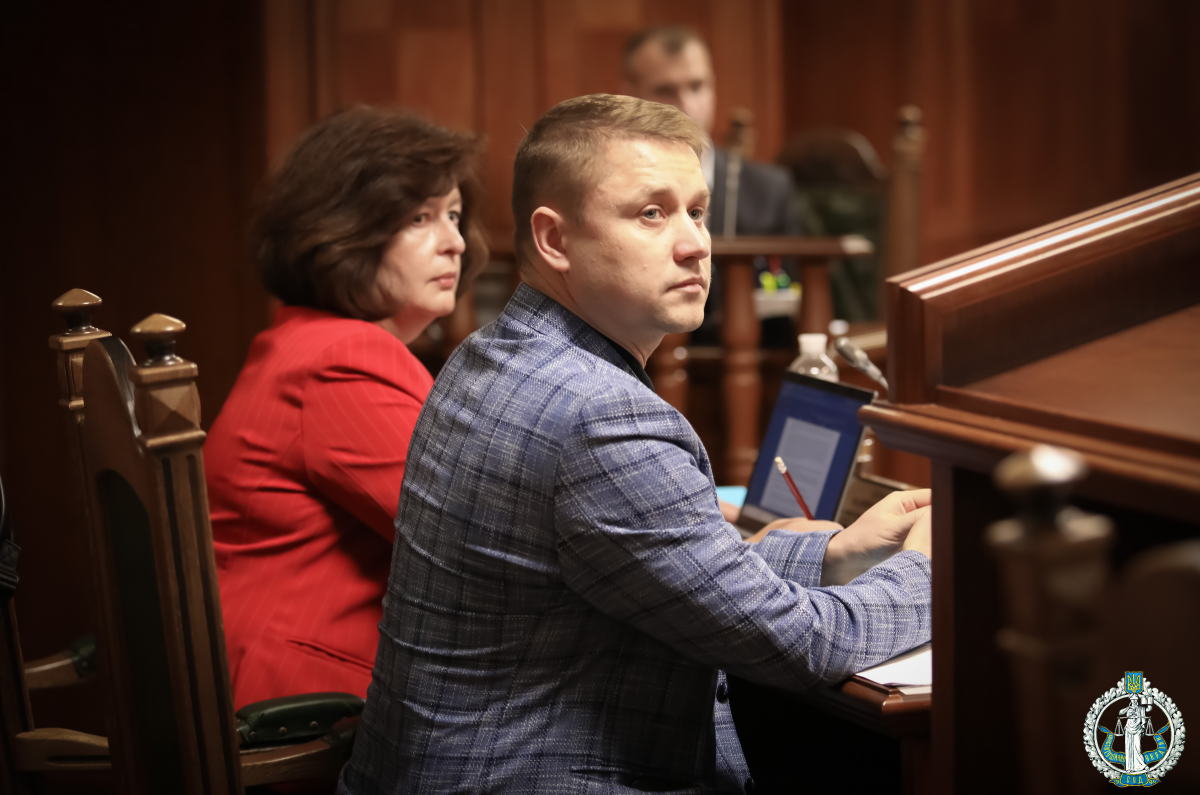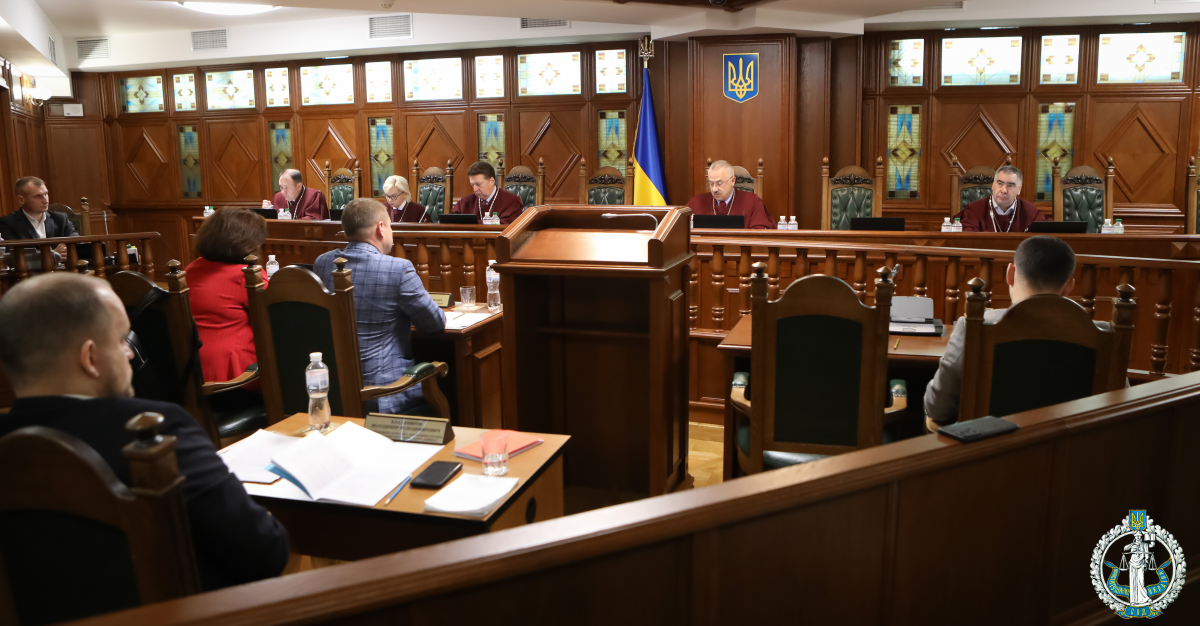On November 1, 2023, at the public part of the plenary session, the Second Senate commenced deliberation of the case upon the constitutional complaint of Oleksandr Tretiak (hereinafter referred to as “the Applicant”) in the form of written proceedings.
During the plenary session, the judge-rapporteur in the case, Serhiy Holovaty, informed that the Applicant requests to verify the compliance of Article 30.6 of the Code of Ukraine on Administrative Offences (hereinafter referred to as “the Code”) with the Constitution of Ukraine.
The contested provision of the Code defines the following: “Deprivation of the right to hold certain positions or to be engaged in certain activities is ordered by the court for a period from six months to one year, regardless of whether it is provided for in the sanction of the article (sanctions of part of the article) of the Special Part of this Code, when given the nature of the administrative offence committed in his/her official capacity, the person who committed an administrative offence, and other circumstances of the case, the court recognises that it is impossible for him/her to retain the right to hold certain positions or to be engaged in certain activities”.
The following follows from the content of the constitutional complaint and the files and materials attached to it.
At the end of 2020, the Applicant was elected to the position of Rivne city mayor.
In July 2023, the Rivne City Court of the Rivne Region adopted a resolution that found the Applicant guilty of committing administrative offences defined Articles 1727.1 and 1727.2 of the Code; imposed an administrative penalty in the form of a fine in the amount of four hundred tax-free minimum incomes of citizens, which is 6,800 hryvnias; on the basis of Article 30.6 of the Code imposed an additional penalty in the form of deprivation of the right to hold positions related to the execution of functions of the state or local self-government for a period of one year.
The Applicant appealed the decision of the first instance court.
The court of appeal dismissed the Applicant's appeal and upheld the decision of the first instance court.
In the constitutional complaint, the Applicant notes that Article 30.6 of the Code establishes the discretion of the body of state power, which is the court, in deciding the issue of deprivation of the right to hold certain positions, but its limits are not clearly defined. Therefore, in his opinion, the contested provision of the Code, on the basis of which he was deprived of the right to hold an elected position, does not meet the requirement of “quality of legal provisions”, and therefore, contradicts Article 8.1 of the Constitution of Ukraine.
The Applicant asserts that the application to him on the basis of Article 30.6 of the Code of an additional penalty in the form of deprivation of the right to hold positions related to the execution of functions of the state or local self-government for a period of one year is an interference with his “right to a professional life”, which according to the case law of the European Court of Human Rights, can be a component of the concept of “private life”.
Considering the fact that, according to the Applicant, the contested provision of the Code, on the basis of which there was an interference with his right to respect for private life, does not meet the requirement of “quality of legal provisions”, this points to a violation of Article 8 of the Convention on the Protection of Human Rights and Fundamental Freedoms of 1950 and, as a result, Article 32 of the Constitution of Ukraine. As the Applicant notes, the provisions of Article 32 of the Constitution of Ukraine are in line with Article 8 of the Convention.
The Applicant also believes that the application of an additional penalty by the courts to him based on the contested provision of the Code “borders on arbitrariness in relation to the mayor, elected to the position by the majority of the city's population”, and cannot be recognised as necessary in a democratic society.
The Applicant concluded that the discretionary powers of the court when applying the contested provision of the Code do not provide the necessary mechanism for preventing abuse, which should ensure, on the one hand, the protection of a person from arbitrary interference by bodies of state power in his/her rights and freedoms, and on the other hand, the possibility of persons to foresee the actions of these bodies.
The judge-rapporteur also informed that in order to ensure a full and objective deliberation of the case and delivering a reasoned decision by the Court, he sent requests to a number of bodies of state power, scientific institutions, establishments of higher education, and individual academicians to express their positions on the issues raised in the constitutional complaint of the Applicant.
After examining the case files in the public part of the plenary session, the Court proceeded to the in-camera part for a decision.
The public part of the plenary session was attended by Oleksandr Tretiak, the subject of the right to constitutional complaint, representatives of the subject of the right to constitutional complaint, lawyers Valeriia Lutkovska and Volodymyr Vladymyrov, Permanent Representative of the Verkhovna Rada of Ukraine at the Constitutional Court of Ukraine Maksym Dyrdin.
The plenary session is available on the official website of the Court in the section “Archive of video broadcasts of sessions”.





